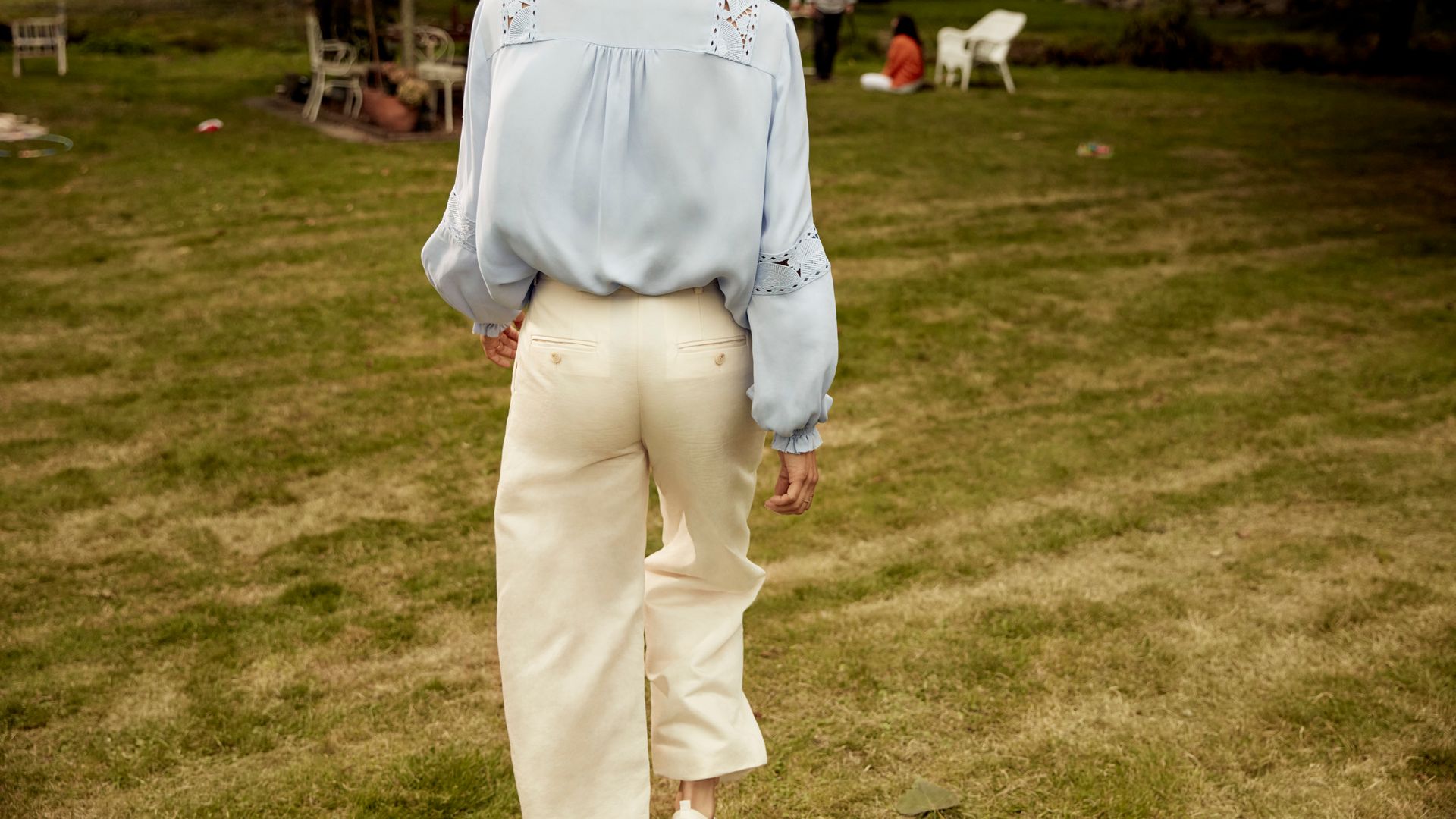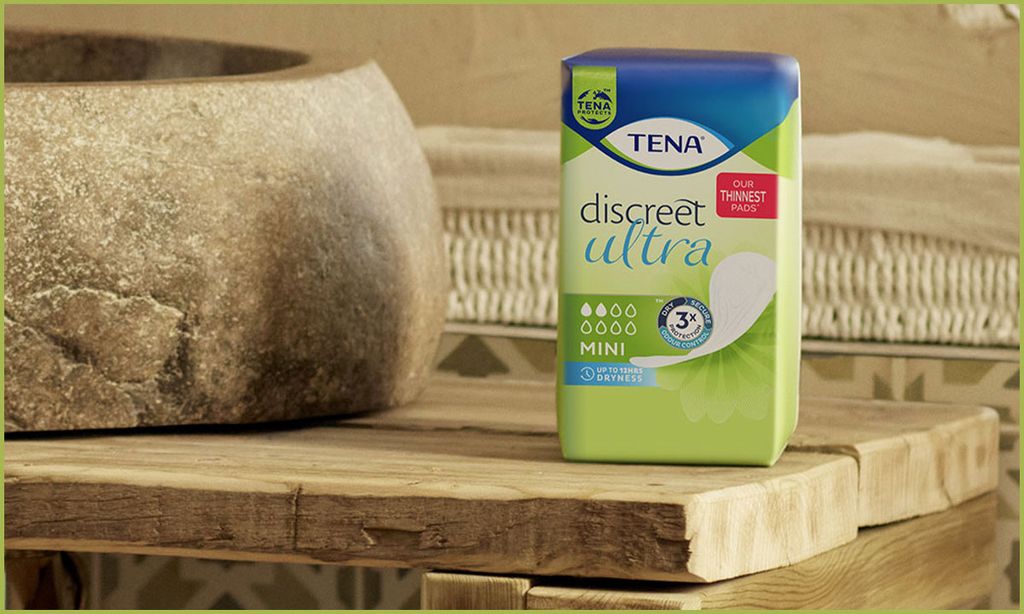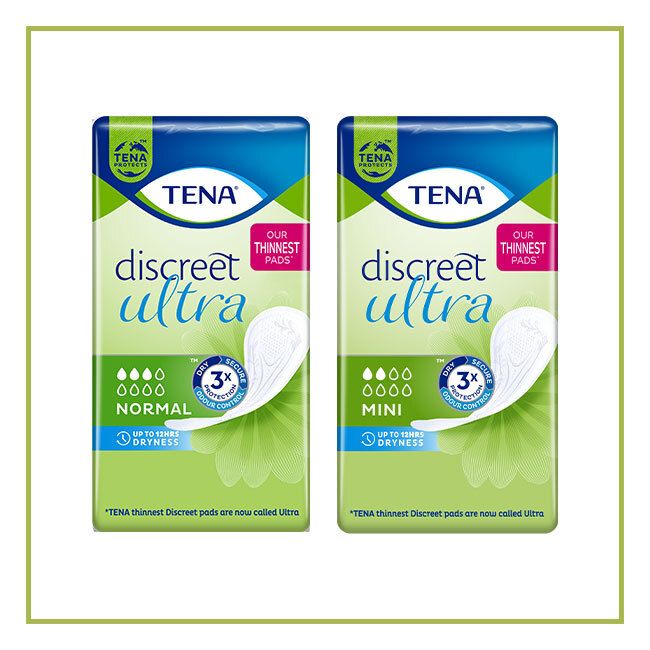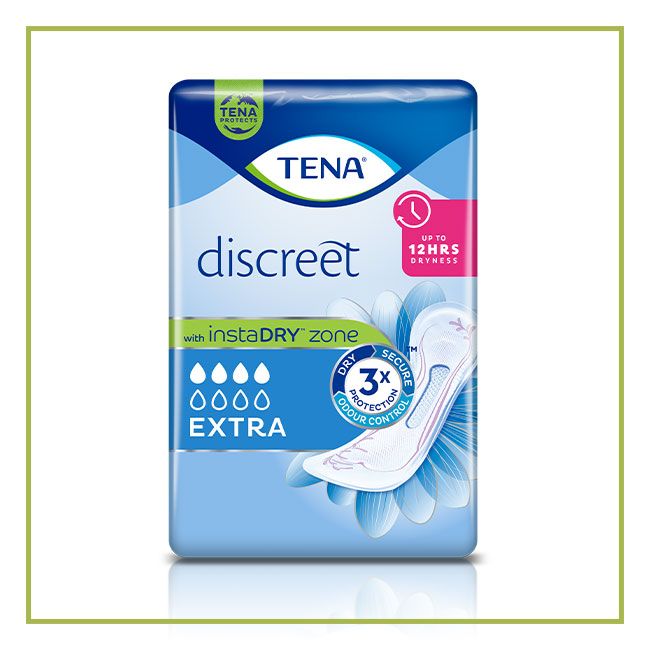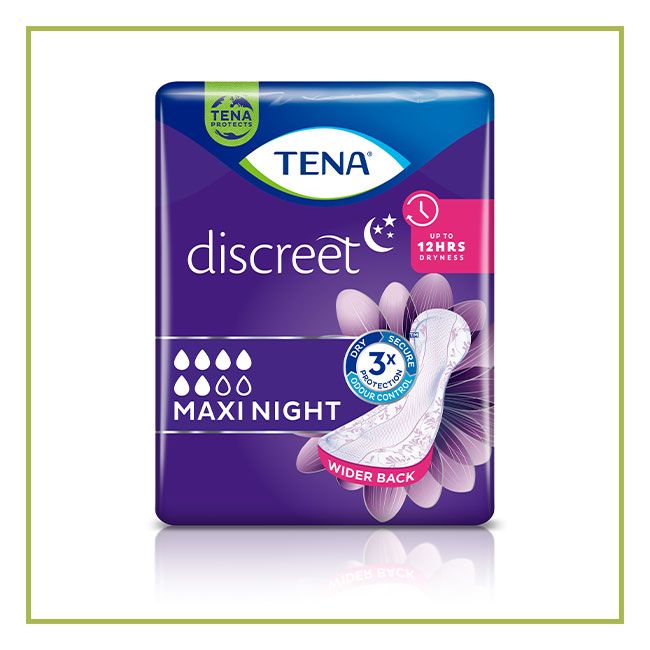Bladder weakness is a symptom that affects one in three women over 35 in their lifetime*, especially post-partum mums, so it’s time to break the taboo around light leaks.
Bladder weakness, the involuntary loss of urine, is a common condition that is rarely discussed. As a result, it can take a huge toll on the mental and physical wellbeing of a new mother, and some women can struggle with the condition for many years after giving birth.
Whilst bladder weakness can take many forms, expectant mothers often experience urinary leaks due to stress placed on their pelvic floor muscles during birth. This means that after the baby is born, any movement that places pressure on the bladder like laughing, coughing, and sneezing could cause a leak.
Finding the right support can be a challenge, and research shows that 30% of women are using the wrong product to protect against bladder weakness*, such as period products which aren’t designed to absorb urine, don’t prevent odour, and can cause dryness or soreness in the intimate area.
You should always speak to your GP to get properly diagnosed, but in the meantime, some simple measures like cutting down on caffeine and alcohol, pelvic floor exercises and bladder training can help. For everyday management, TENA is trusted by millions to help them feel confident, secure and protected all day long.
Want to get clued up on bladder weakness myths and facts? Read on…
Top five myths about bladder weakness
Myth one: Light leaks are a part of getting older
Fact: Nope! Bladder sensitivity affects people of all ages and can be due to many reasons such as pregnancy, diet, stress and smoking. In any case, talking about the condition is a helpful way to normalise the subject and helps those suffering to discover the support they need. Finding a private moment between you and someone you trust – whether that’s a GP, a partner, or a friend - to discuss the issue at a time and place where you won’t be interrupted can be a good place to start.
Myth two: Bladder weakness can be avoided by drinking less liquids
Fact: Drinking at least six glasses of water a day is important for staying hydrated, and not drinking enough water can cause your bladder to stop working properly. However, it’s sensible to avoid alcohol and caffeinated drinks where possible, as they can contribute to frequent urination and leakage. It can also help to cut down on acidic foods like citrus fruit as they can irritate the bladder.
Myth three: Only women experience bladder weakness
Fact: Not true! Studies show that one in four men over the age of 40 experience urine leakage**, making it a very common occurrence. Discovering the cause and understanding ways to manage the leakage are important steps when dealing with the condition. Products like TENA’s bladder weakness pads and pants are designed to fit a female or male anatomy, to ‘cup’ the area and catch any leaks.
Myth four: You can’t control bladder weakness
Fact: It’s important to get to the bottom of your bladder weakness with a diagnosis from your doctor. Pressure put on your pelvic floor can be for any number of reasons, including constipation! You might not be able to stop leaking immediately, but there are ways you can learn to manage the condition comfortably, whilst taking steps to improve or stop the condition completely.
Keeping a bladder journal is a simple way to notice when you leak the most, so you can anticipate when you might need extra protection. You could also download an app to help you locate your nearest public toilet when planning a day out, which can provide some peace of mind. To look after the skin around your intimate area while using protective pads, opt for no-rinse products instead of harsh soaps to gently clean, restore and protect the delicate skin.
Myth five: Pelvic floor exercises don’t work
Fact: False! Your bladder is kept in place by several muscles in the pelvic floor. By strengthening those muscles, you can gain better control of urination. Naturally, as your muscles lose resilience due to age, childbirth or other factors, leaks can occur. But pelvic floor exercises can counter this and help you to strengthen your muscles. If you’ve recently had, or are expecting a baby, speak to your doctor about how to introduce the exercises into your daily routine. The sooner you start them, the better! Core-focused exercises such as yoga or pilates are good for you, too.
Which bladder weakness product from TENA is right for me?
Trusted by millions, TENA’s pads and products help people to stay secure, dry and odour free. For over 60 years, the brand has designed the most discreet, innovative feminine pads and underwear to provide the most effective and elegant solution to a surprisingly common problem.
Not everyone’s struggle with bladder weakness will be the same, and for some people a little extra protection is just enough. TENA Discreet Ultra Normal and Ultra Mini Pads have been created for those with mild and light bladder weakness and are extremely thin and discreet – keeping you dry for up to 12 hours. The ultra-thin design protects against light leaks, odour and moisture and provides a confidence boost for those with very mild bladder health concerns.
For unexpected daily leaks, the TENA Discreet Extra pads provide long-lasting dryness for up to 12 hours. With triple protection from medium leaks, odour and moisture, the pads provide soft and comfortable protection all day long.
The pad is designed with elasticated sides that gently adapt to fit the shape of your body, and Fresh Odour Control through advanced micro-fresh pearls that encapsulate liquid and eliminate odour. They're also individually wrapped, making them ideal for busy mums in a hurry.
It’s normal to need a little extra protection if you’re dealing with night-time leaks – especially if you’ve recently given birth. Designed with extra length and width at the back for even better coverage, TENA Discreet Maxi Night Pads offer optimal protection when lying down and the highest absorbency. Comfortable and secure, each product is dermatologically tested and perfume free, so even those with sensitive skin can sleep peacefully.
To discover the rest of TENA’s product range, as well as more helpful tips and expert advice on how to manage bladder weakness, check out their website. Talking about bladder health is the first step towards normalising the subject, and if you’re uncertain about the type of support you need, always speak to your GP.
Shop the entire TENA Discreet range online or shop TENA Discreet Pads in most major retailers. Prices start from £2.75, although price may vary according to retailer.
*Global Inco Consumer Segmentation Study, GFK, 2019
**Data from Male Urinary incontinence Prevalence Study, 2013, TENA.co.uk May 2023
